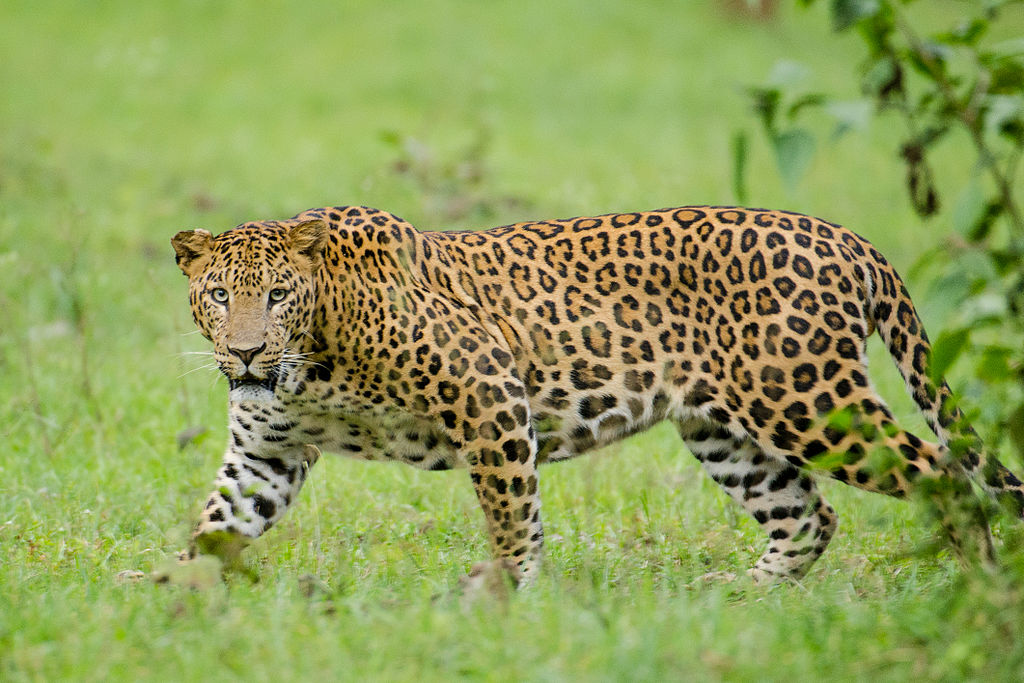Leopard-human conflict in India is a complex issue that requires a multifaceted approach to address. Here are some solutions that can help reduce the frequency and severity of conflicts between humans and leopards.

Habitat Restoration and Management
The loss and fragmentation of natural habitats are significant factors contributing to human-leopard conflict in India. Therefore, habitat restoration and management can help reduce conflicts between humans and leopards.
One effective approach is to create wildlife corridors or green belts that connect fragmented habitats. These corridors allow animals like leopards to move freely between different habitats without having to cross human settlements. Additionally, restoring degraded habitats can help provide a more suitable habitat for leopards, reducing their need to venture into human settlements.
Law Enforcement to Combat the Illegal Wildlife Trade
The illegal wildlife trade is a significant factor contributing to human-leopard conflict in India. Therefore, effective law enforcement is necessary to combat the trade and reduce the demand for leopard products.
Law enforcement agencies should work towards apprehending poachers and wildlife traffickers, and prosecuting them to the fullest extent of the law. Additionally, public awareness campaigns can help educate people about the consequences of participating in the illegal wildlife trade.
Education and Awareness-Raising Programs
Lack of awareness and education about leopards and their behavior is also a significant factor contributing to human-leopard conflict in India. Therefore, education and awareness-raising programs can help reduce conflicts between humans and leopards.
These programs should focus on educating people about leopard behavior and how to respond to leopard sightings. Additionally, they should emphasize the importance of securing homes and livestock to reduce their vulnerability to leopard predation.
Strategies to Reduce the Vulnerability of Domestic Animals to Leopard Predation
As human populations increase, the availability of natural prey declines, leading to an increased likelihood of leopards preying on domestic animals. Therefore, strategies to reduce the vulnerability of domestic animals to leopard predation can help reduce conflicts between humans and leopards.
One effective approach is to provide better protection for livestock by using appropriate fencing and housing. Additionally, providing alternative sources of income, such as beekeeping or vegetable farming, can reduce dependence on livestock and reduce their vulnerability to leopard predation.
Rapid Response Teams to tackle Leopard-Human Conflict
In areas where human-leopard conflict is frequent, rapid response teams can help reduce the likelihood of conflicts turning fatal. These teams should be equipped to respond quickly to leopard sightings and have the training to safely capture and relocate leopards if necessary.
Additionally, rapid response teams can help educate people about how to respond to leopard sightings and provide guidance on how to secure homes and livestock.
Compensation for Losses due to Leopard-Human Conflict
When conflicts between humans and leopards occur, people often experience economic losses due to damage to homes and livestock. Therefore, compensating people for their losses can help reduce the negative impacts of human-leopard conflict.
Compensation schemes should be designed to be fair and transparent, and should provide sufficient compensation to cover the economic losses incurred by people. This can help reduce the incentive for people to retaliate against leopards and reduce the likelihood of conflicts turning violent.
Help us Help Them! Think Wildlife Foundation is a non profit organization with various conservation initiatives. Our most prominent campaign is our Caring for Pari intiative. Pari is a rehabilitated elephant at the Wildlife SoS Hospital. 25% of the profits from our store are donated to the elephant hospital for Pari. Other than buying our wonderful merchandise, you could donate directly to our Caring For Pari fundraiser.
Written by: Aryan Patel
